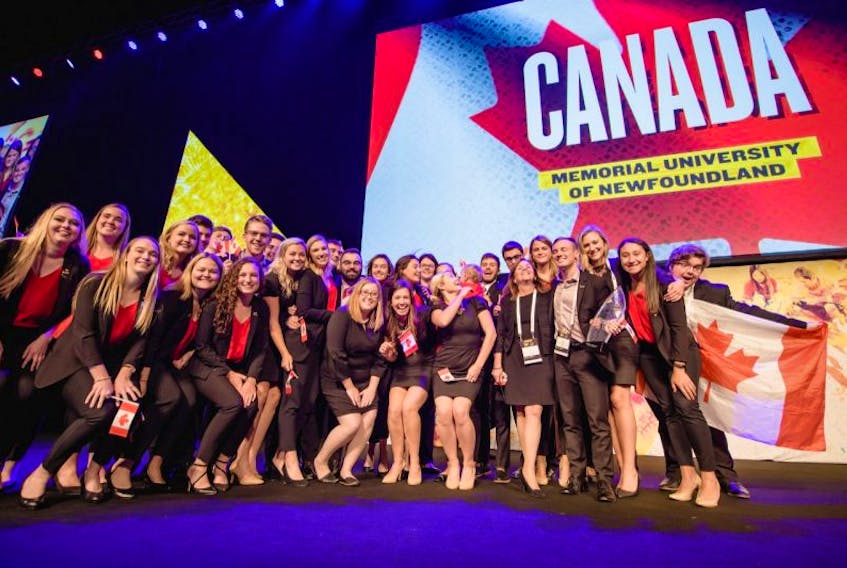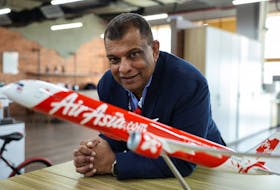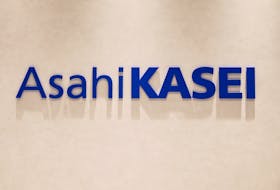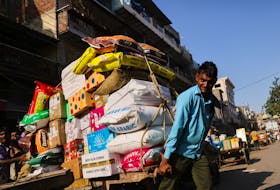But you won’t find members of the Memorial University team griping about their second-place showing against the same team they beat to win the 2016 crown.
“The things that team is doing for sanitation in India is really incredible, so if we had to come second, we’re happy for it to be to them,” says Enactus Memorial president Taylor Young.
“It’s hard to be a rival too much when you’re trying to make the world a better place.”
Enactus is an international non-profit organization that challenges students from post-secondary institutions around the world to use entrepreneurial action to improve the quality of life for people in various parts of the world in an environmentally, economically and socially conscious manner.
This year, 1,700 teams representing 36 countries competed in the initial stages. That field is narrowed down through regional and national competitions, resulting in 36 teams at the world cup.
Enactus Memorial’s flagship endeavour the past two years has been Project Sucseed, which helps people in northern communities address their own food security issues by growing produce year-round.
While the merits of the project didn’t push the team over the top at this year’s world cup, it did garner a second-place finish in Enactus’s new Water Race sub-competition, and top spot in the 1 Race 2 End Waste sub-competition.
“Which is pretty amazing, particularly considering Sucseed is not something we thought of as a water project,” says Young.
“Water projects are pretty common at Enactus and they’re typically water filters, a real obvious application for water conservation, but it turns out they really understood the application of Sucseed as something that’s doing good things for water quality and access to clean water.”
The new sub-competitions also presented an exciting challenge for the MUN team because members of the team tasked with presenting in the main competition weren’t allowed to be part of the race teams.
“It was a great opportunity for us to take some people that wouldn’t normally get the chance this early to compete at a world cup, because maybe they’re earlier in their program or they haven’t been with the team for as long.
“They got the opportunity to stand on the big stage and give their presentation and they really knocked it out of the park.”
With the competitions out of the way for 2017, Young, who just took over the presidency from Emily Bland, says the next year will be about keeping momentum in their various projects to ensure there isn’t a lull that might affect recruitment of new students or the impact of the projects.
“Looking at the new projects that have been in the pipeline for a while and figuring out which one we really want to drive forward,” she says.
“That decision will come from, first of all, what does the community need and then secondly, what does our team want to do. If we can match those two together, then we typically have some real success.”
It’s also a transition year for Sucseed.
Until now, the project has been in the equivalent of grade school. But it’s ready to graduate and get ready to stand on its own legs.
“Our plan is to help it reach its full potential,” explains Young, though the team isn’t sure what that will look like yet.
“It will stay with Enactus for a little while just to make sure we can shape it into what it needs to be, but with revenues generated from the project we’ll be able to hire full-time people and that will be really helpful in making sure that this can operate.”
On top of a partnership with Tim Hortons that will hopefully result in Sucseed bins placed in every elementary school across Canada, the MUN team scored a major boost thanks to a new partnership with the Woodward Group of Cos.
The company donated $48,000 toward the purchase of 90 units and is delivering them to all 25 communities in Nunavut and five in northern Labrador through its coastal shipping division.
“We even had situations where they would take the units and put them on the doorsteps of people,” Young says. “It was a pretty incredible show of support on their end.”
Learn more about the MUN projects online at enactusmemorial.com.
Twitter: kennoliver79









